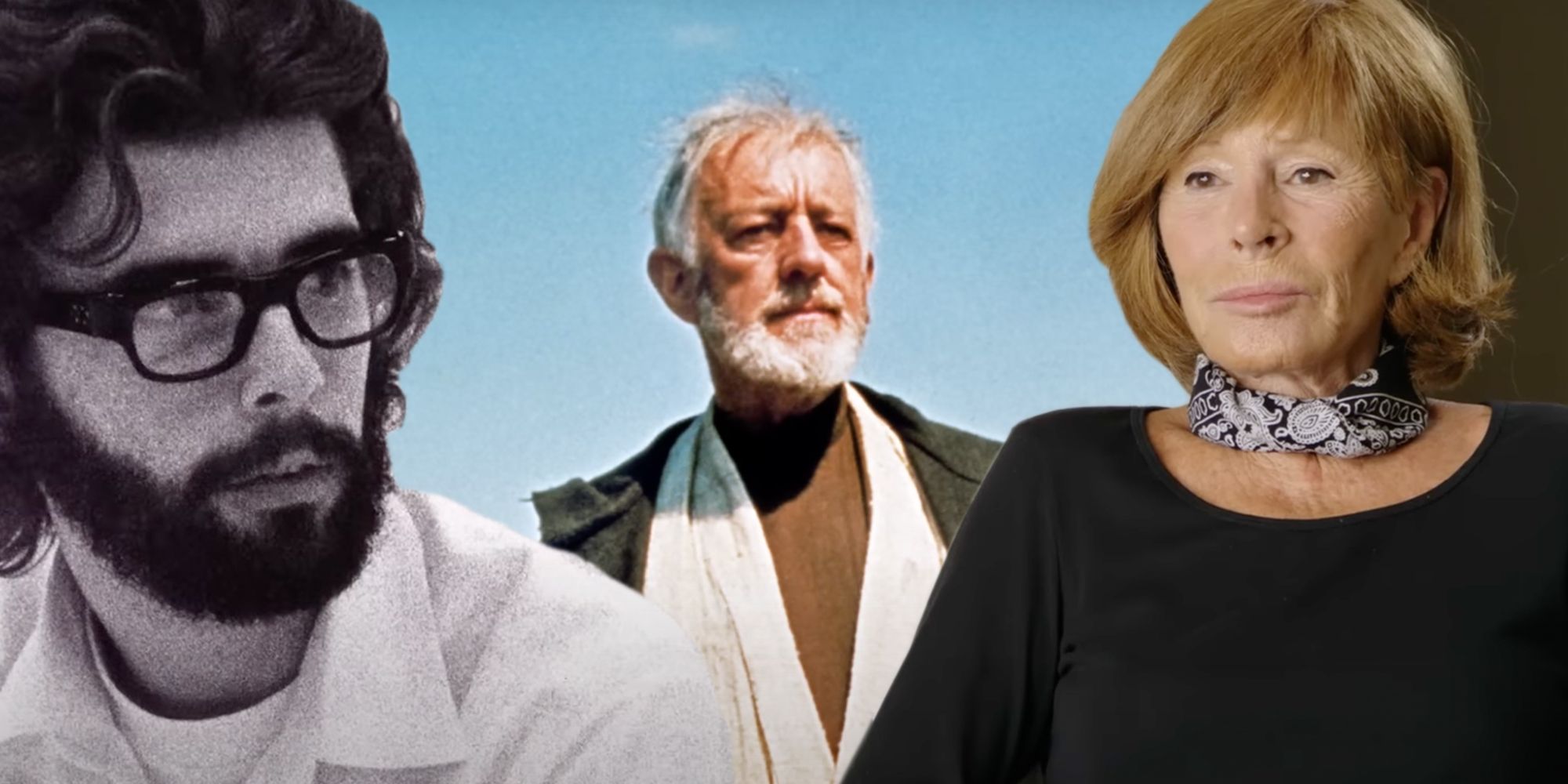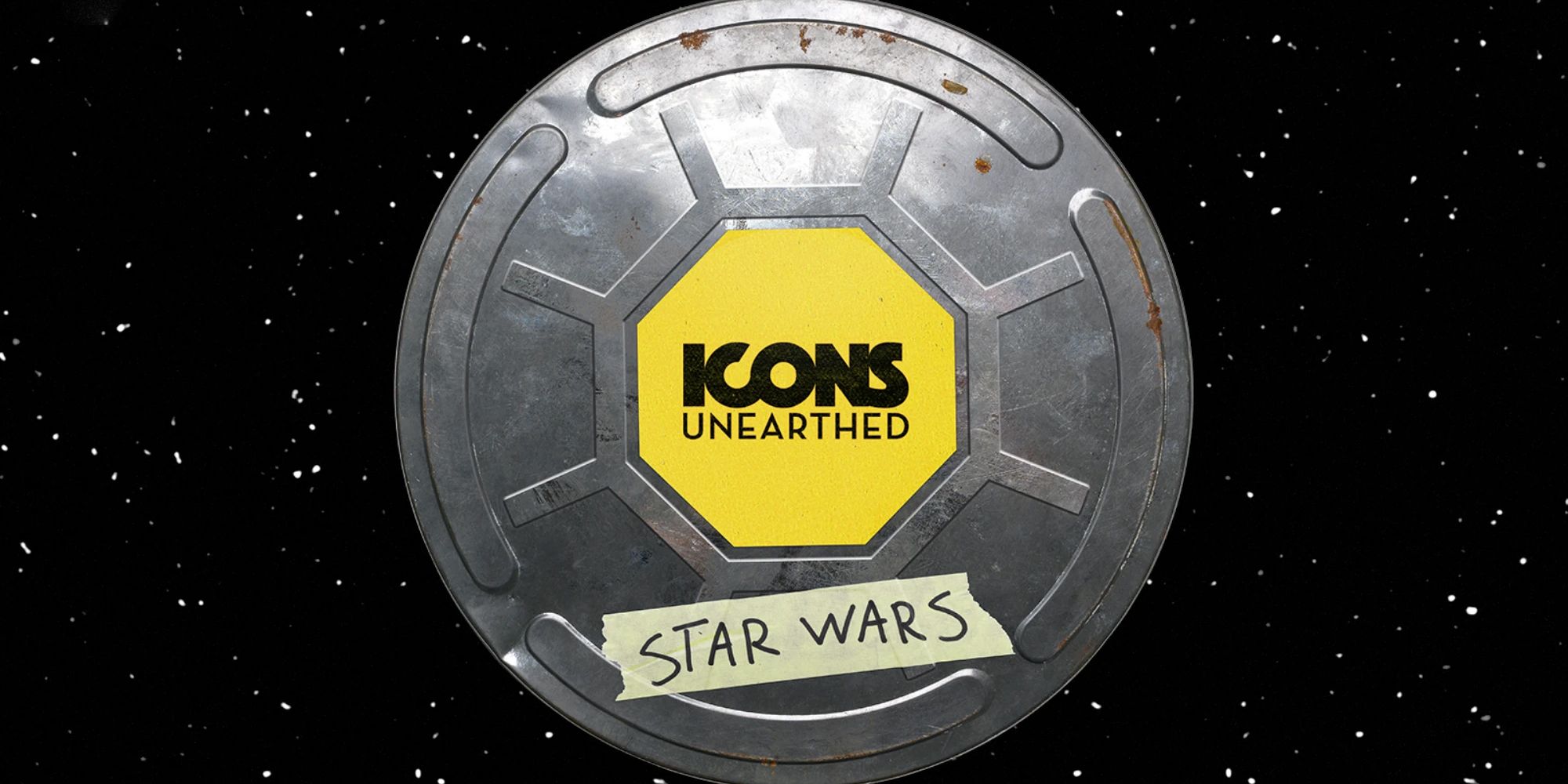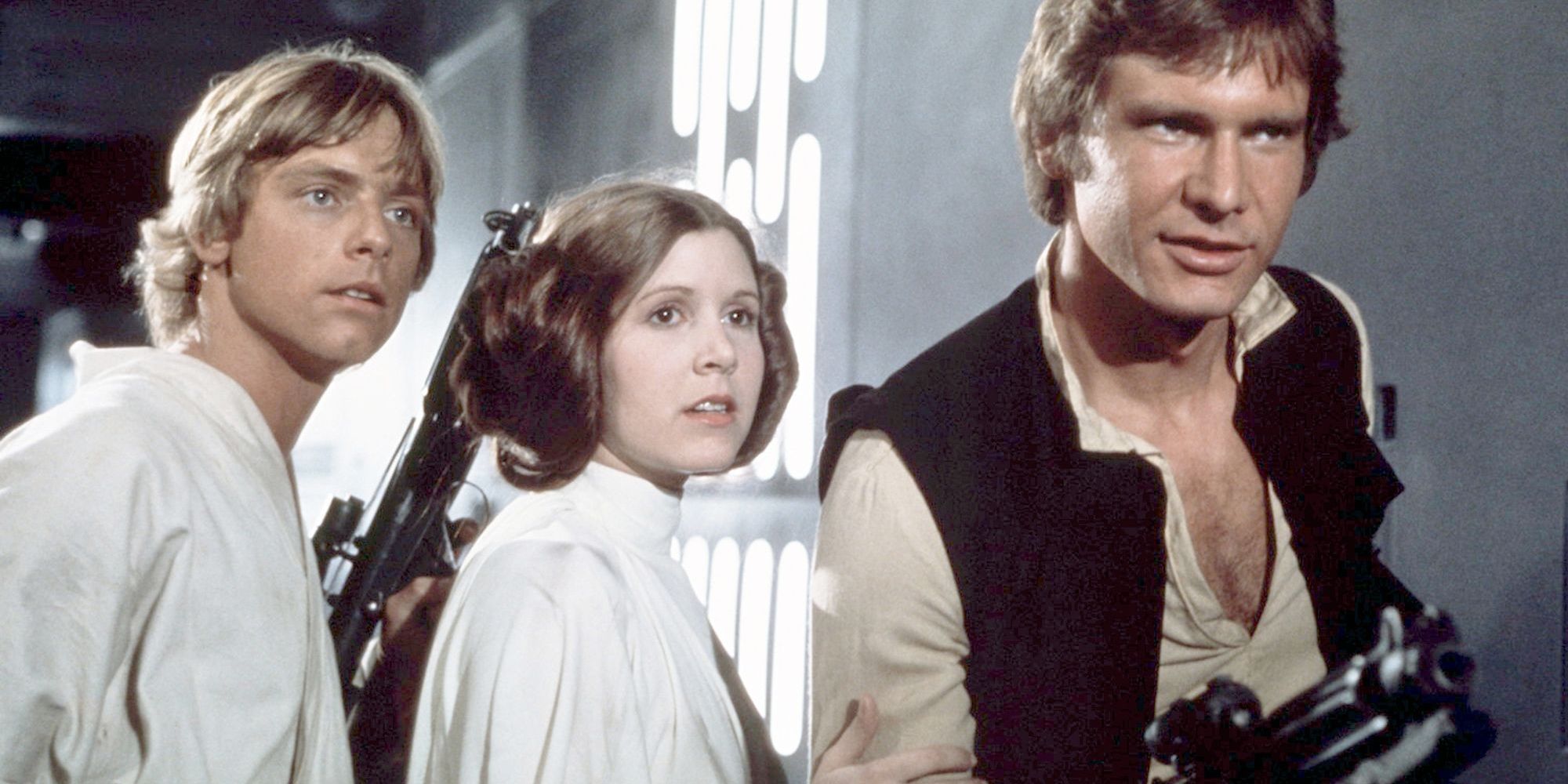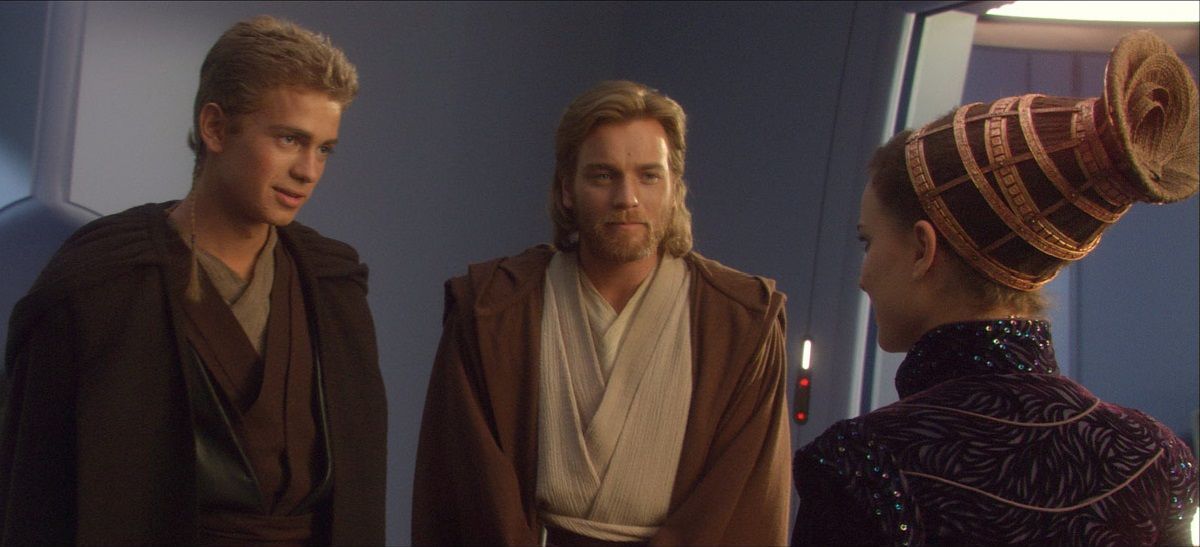Icons Unearthed: Star Wars, the new six-part documentary series presented by Vice TV and the Nacelle Company, tells the story of Star Wars in a brand-new way. The series covers Star Wars episodes I-VI, shedding light in equal part on the struggles and successes of the films. Featuring cast members such as Anthony Daniels alongside a number of the films' original crew members, Icons Unearthed: Star Wars season 1 is full of firsthand stories sure to engage longtime Star Wars viewers and newcomers to the series alike. The series even features the first-ever on-camera interviews with Marcia Lucas, George Lucas' ex-wife, who was an editor of the original Star Wars trilogy.
The series was created and directed by Brian Volk-Weiss, the founder of the Nacelle Company. Although Volk-Weiss found his initial success in the comedy world, he is well-known for his work on the hit Netflix series The Toys That Made Us and The Movies That Made Us. Volk-Weiss turned his attention to Star Wars for the first season of Icons Unearthed, though the show is apparently going to tackle The Simpsons in its upcoming second season.
Brian Volk-Weiss spoke with Screen Rant about the intention behind Icons Unearthed: Star Wars, getting Marcia Lucas on board, and giving fair treatment to the prequel films.
Screen Rant: You came up in the comedy world, right?
Brian Volk-Weiss: Yeah. I was a manager for ten years.
What prompted the shift into your documentary work?
Brian Volk-Weiss: It was interesting. It's pretty crazy. I started off as a manager, and I only represented comedians. And when you only represent comedians, between zero and, like, three times a year, you produce a stand-up special for your clients. One day, I got a phone call from an agent asking me if I would produce a stand-up special for a client of his that already had a manager, and I was very offended. I was like "This is ridiculous. Why are we good enough to produce for him, but not manage him?" I was not that nice.
In the morning, I woke up, and I realized that my job was to make money - as long as it was legal - and I called him back and apologized. Word got out - by the way, it was Michael Ian Black - that we were producing stand-up specials for non-clients, and the best way I can explain this to you is, in less than a year, I got up from my desk and went to go to the bathroom, and in the bathroom I bumped into Jim Gaffigan, Kevin Hart, and Aziz Ansari. That was less than a year after doing that Michael Ian Black special. So it suddenly occurred to me - and by the way, management is not the most fun job. Another way to say it is, I'm not really aware of a worse job. I'm sure mining in a salt mine is not fun, fair enough, but it was a lot more fun to produce standup specials. And we started doing that at a scale nobody was doing yet. Within three years, we were doing twenty-five to thirty a year, and most importantly, we retained ownership of 95% of the specials we made, which allowed us to build a library.
I had always loved documentaries, so this entire time, every year usually, I would be able to sell one documentary series to somebody. And to be honest with you, they never came out that well. I was still managing, I was still producing standup specials, and I was, and I am, a huge toy collector. I had been trying to sell this show about toys, the history of toys, for seven years. And I had gotten very close a few times, but I'd never sold it.
The guy at Netflix, whose name is Devin... I had done almost all of my standup comedy deals with him for years, and then one day he calls me and says, "Hey man, Netflix just put me in charge of unscripted, do you have anything?" So, of course, the first and only thing I brought to him was this show about toys I had been trying to sell for 70% of a decade. He gave some great notes, we shot a tape, and we redid the entire show. His notes... I gave notes last night on a cut, and those notes were directly related to the notes Devin gave us at that time, which is about six years ago. That led to Toys That Made Us, and it was our first show ever to get a second season. What I learned from that was, apparently if I'm passionate about something I'm doing, I do a better job.
After that, we shifted to really focusing on unscripted docuseries that were things that the company was attracted to. And really for the most part, that falls into two categories: pop culture and comedy. It's likely broader than that. People ask me all the time what we're looking for. What I always say now is the only thing we're not looking for is dark, or dark for the sake of dark. We don't want to do the wife that kills the husband, or the husband that kills the wife, we don't want any of that. But other than that, we're up for anything, and we're basically using the same model that we used for the stand-up comedy business in our documentaries. So we now own the majority of the documentaries we're making. So Icons: Unearthed, we licensed that to Vice, we license to other companies, but just like what we did with standup comedy, which has now led to an over 2,000 special library, we're attempting to do with documentaries.
Star Wars has been around for a while. It's been very documented and very discussed. When did you feel like you'd found an angle of that story that was worth telling?
Brian Volk-Weiss: You know, it's really funny, and I went through this last year with Star Trek. I'm a huge Trekkie, and I'm a huge Star Wars guy. I'm into both equally, which is kind of unusual. But because I'm such a fan, I have read almost every book about the making of Star Trek and the making of Star Wars, and I've seen every documentary - within reason - about the making of both. Something that I don't understand, but I have been aware of for at least fifteen years, is that a lot of stuff in the books never makes it into the documentaries. I have a couple of theories as to why, but to answer your question, it was very easy. Because I knew all this stuff from the books that was never in the documentaries. So, I just put what was in the books in the documentaries. That was number one.
Number two, most people that make documentaries about these things fall into two categories. One, they're working for the rights holder. So our Star Trek show, or our Star Wars show - we didn't make that with Viacom. We didn't make that for Disney. We made it for ourselves, so we were able to put in whatever we wanted, and there was no like, "Oh, no, no, no. You can't talk about Lucille Ball. It has to be about only Gene Roddenberry." So that's part of it.
The other part is, the other people that make documentaries about these things usually have a full-time job doing something else. It really is a labor of love, and they're working in their garage or a basement, and usually, they're only able to do one two-hour documentary. So with Icons: Unearthed, we had six hours. With our Star Trek show, we had eleven hours. So we were able to tell a story that, A.) because of the books, I knew what to put in, and then B.) I had the time to do it. So that, for lack of a better expression, that's exhibit A.
Exhibit B. Starting with Toys That Made Us, which is now - we started production on that six years ago - if you look at the credits of this week's episode of Icons: Unearthed, of Star Wars, it's probably 80% the same people. So we have this team now that is like going every day for six years, so we are able to go very quickly and get somebody, for example, like Marcia Lucas, who had never done an on-camera interview ever. From greenlighting the show to booking her was probably about six or seven weeks. And I don't know if that sounds like a long time or not, but the fact that she hasn't done an interview in fifty years, and we got her in two months... that's because I'm working with - in my very biased opinion, but I still feel this is accurate - with one of the greatest teams in the history of documentaries.
Was it a struggle to get Marcia? And do you know why she hasn't spoken about this before?
Brian Volk-Weiss: We've produced a lot of shows like this, and what I've learned is, there is absolutely no connection between who the person is and booking them. Like, we got Sigourney Weaver easily for our Aliens episode of Movies That Made Us, but the second AD was impossible to lock down, and we never got him. So, you just have to keep calling. If we don't just get them right off the bat, one of the main ways we get people that are hard to get is through somebody we've interviewed. They trust us, they will help us get who we want.
We had interviewed somebody; we already knew him, he had a great time with us, and he was like "Who are you trying to get?" And we were like, "Well, our white whale is Marcia Lucas." And he was like, "Well, who are you talking to?" We said who we were talking to - it was agents, or publicists, or some lawyer, somebody like that - and he was like, "No, no, no, you've got to go through this woman." So he gave us her name, and most importantly he texted her and said we were cool. And then we got the interview. It's funny. I woke up one morning, I think it was a Tuesday morning... I was supposed to fly to New York at three p.m., and I woke up to this email saying she was in, "tomorrow and for the next nine days." And at two p.m., because she was in Hawaii, I had canceled my entire New York trip, flew to Hawaii that day, and was interviewing her the next day.
After the interview, and to the best of my knowledge, I had never, ever done this before, but I asked her, "Why? Why did you say yes?" And I could have guessed her answer because I'd figured it out, but it's all about timing with someone like her. Six months earlier, she may have said no, six months later she may have said no. And, she did not say this, but it was a six-hour interview... Listening to her, I think it was two things. One, she's less than four years away from being eighty, so that does something to you, and two, I think she's kind of starting to get pissed off that she's been left out of the history. Because in the six hours, she must have told the story four or five times about how she read a book at the twenty-fifth anniversary, and there was only one mention of her in the glossary. And when she went to the page from the glossary, it was literally a poster of A New Hope, and they just mentioned her in the glossary because her name is on the poster.
I think it just got to her. "I'm almost eighty, I played a massive part in the success of this movie, and f*** everybody. I'm going to talk about it." And that's 99.5%. 0.5% is, her friend that introduced us and the person who introduced us to her, loved Movies That Made Us. That's a huge variable as well.
Did you guys try to reach out to George Lucas?
Brian Volk-Weiss: Always. We reached out at least once, probably twice. Listen. I never did an interview in my life until five years ago, so I've only been doing press for five years, and let's just say I'm not jumping up and down to talk about toys the way I was five years ago. I mean... how much can you talk about R2-D2 being the perfect shape for a cookie jar? How many times can you tell that story? That's five decades of telling that story. But I do know, and again, I have no way of knowing if this is true, but based on the people that told me the story, I'm 99% sure it's true. George... Lucas - I don't think I can call him George yet, I've only met him once for about eleven seconds - he did see the Toys That Made Us episode, and he loved it. But I have no way of knowing if that's actually true.
Okay. You spoke to this earlier about other documentaries being beholden to the creators, but you really dive into a lot of behind-the-scenes controversies on this show. I haven't gotten to the prequel films yet, but those are even more controversial in the zeitgeist. How was it to dive into those films and hear about their reception from the people that worked on them?
Brian Volk-Weiss: I will say this. Those films are not controversial to people under thirty. My films [the original trilogy], which inspired my whole career, are very boring to most people under thirty. And it's funny - almost our entire editorial team is in their forties and fifties, and I'd get the first cuts on the prequels, and be like, "Stop it. You don't get it. This is your opinion. We are making this show for everybody. We cannot be biased." And I will say for the record that I do not hate the prequels. I'm forty-six, and I'm one of the only people I know at my age... I don't know if I've ever met somebody my age that likes them as much as I do.
We dove into it the same way we dove into anything. It's funny. We get a lot of credit for this show because of Marcia Lucas, and again, she hasn't done an interview, she is who she is, and tha'ts great. But the Howard Kazanjian interview was equally bonkers, because he also gave a ton - he said stuff that has been rumored for fifty years. And as it relates to the prequels, because the question you're asking is about us diving into the controversy - and by the way, Disney+ just put out one of the greatest documentaries of all time.
The behind the scenes at ILM (Light & Magic), and you'll notice - I get why Marcia's not in it, but it's weird to me that Kazanjian's not in it. Kazanjian absolutely should have been in it, because what Kazanjian had a front row seat - and you have to remember with Marcia, she's working on Star Wars, then she goes to New York for six months to work with Scorsese - Kazanjian was there every day for Return of the Jedi, Empire Strikes Back, and he was literally the guy who basically quasi-shut down ILM after Return of the Jedi. ILM and Lucasfilm were kind of on pause, especially Lucasfilm, after Return of the Jedi.
To your question, we don't shy away from the controversy, because A.) we're always, no matter what, trying to write a love letter to the subject we're covering, but think about the definition of love. I love my wife, it's the greatest thing hta'ts happened to me, I'm so lucky that we met, I'm not aware of anyone that has a greater marriage than me. We fight! We have arguments. So, how can you write a love letter that people will trust to Star Wars, if you're not talking about - If we just did a love letter, and everything was great, who's going to believe that, and how do you bond with something - either a person, or a movie or a documentary - unless it's being truthful? So I feel like we straddled the line of being truthful, not being afraid of certain topics, but it's still a love letter, because I'm not going to do anything that is punching down on something we're covering. I just don't want that in my life. I don't know why I would make a documentary and spend six to twelve months doing something on something I hate.
Like, I keep getting asked, "Are you going to cover the new Star Wars movies?" And what I always say is, "If I can do a documentary about The Force Awakens, Rogue One, and Solo, yes. But if I have to cover any of the other ones, someone else can make that."
And your next season is on The Simpsons, right?
Brian Volk-Weiss: Correct.
Why is that the next one?
Brian Volk-Weiss: Not to be cheesy, but it's in the title. It's Icons: Unearthed, and I take that word "unearthed" very seriously. Star Wars and Star Trek, there have been a billion documentaries about, and I felt with all of our experience and resources, we could bring something new to the table. Whether we did or we didn't, that's for everyone else to decide. But, Simpsons? How many documentaries have been made about The Simpsons?
One?
Brian Volk-Weiss: Yeah. And how many hours is it?
I don't even know. Not six.
Brian Volk-Weiss: Two hours. Like ninety-five minutes. So, as we continue, if we do more than The Simpsons... which, based on how Star Wars has performed, is highly likely, you will see us start diving into these things that are literally the title. Icons, meaning they're huge, but for whatever reason, they have not had a documentary made about them. So as we go forward, the more of these we make, two things will be in common. [They'll be] very, very, very, famous things - and it doesn't always have to be a movie, by the way. I very deliberately picked a title... I want to do Icons Unearthed: Tom Cruise!
Please.
Brian Volk-Weiss: Listen. I don't know what's going on with Top Gun: Maverick. I'm not even a fan of the first one. I've seen it twice, I understand how revolutionary it was at the time, I get it... I don't know what's going on with this Maverick. I've seen it twice in the theaters. I've only seen five movies this year, and two of them were Top Gun: Maverick. But it got me thinking. I love A Few Good Men, I love this new Top Gun... my point is, Icons Unearthed doesn't have to be about movies. All it needs to be about is a big thing in pop culture that has not been covered that well.
All six episodes of Icons Unearthed: Star Wars are streaming now through Vice TV.




